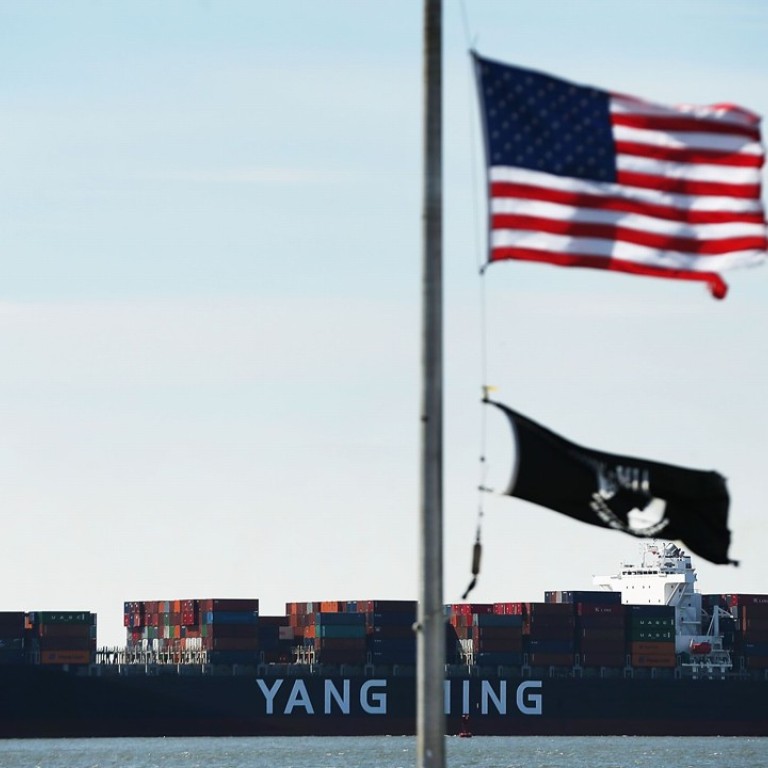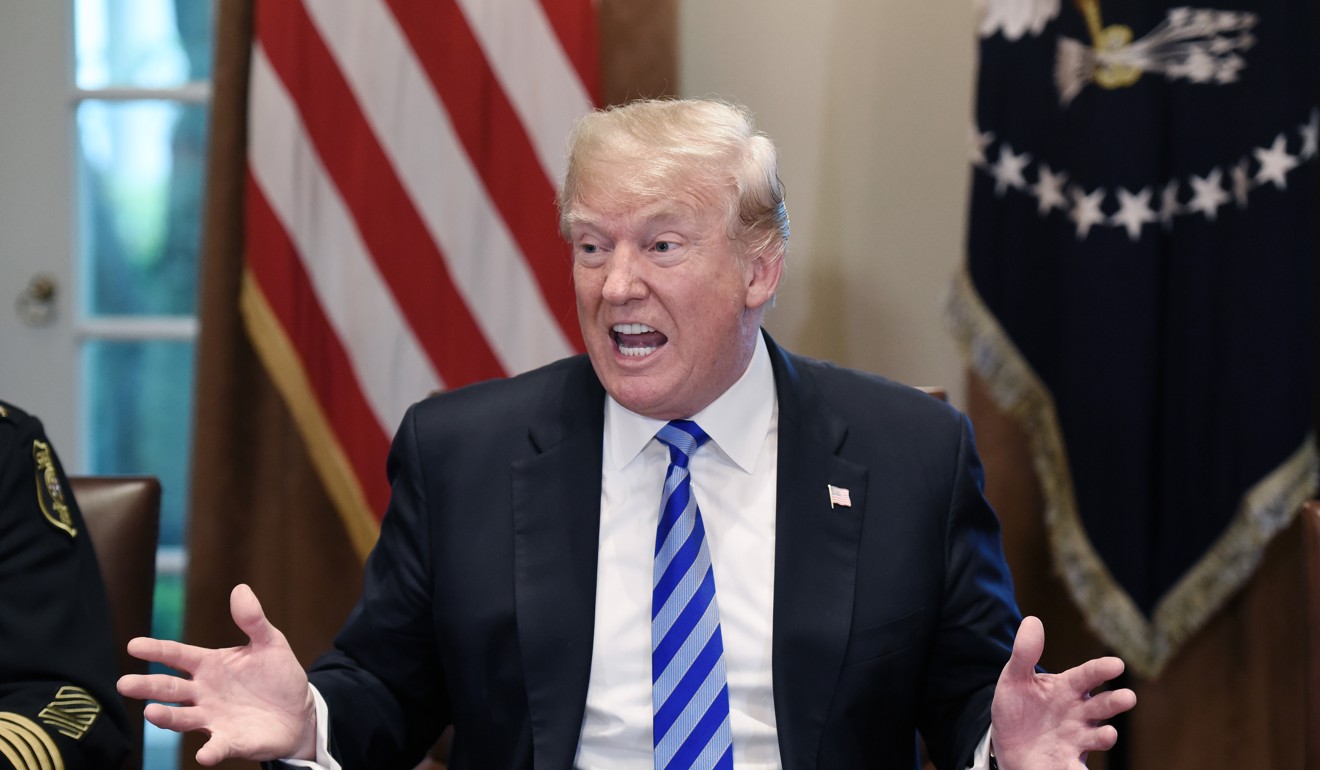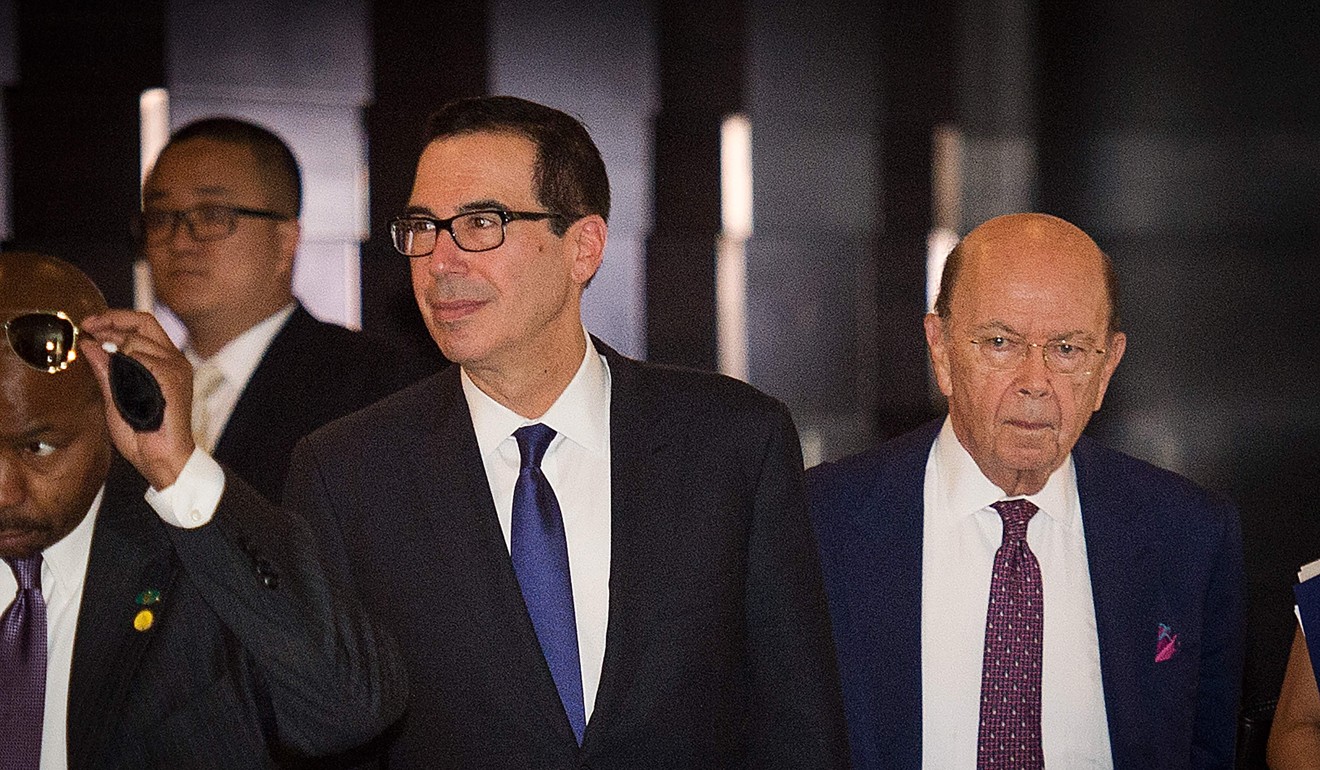
Don’t listen to Trump, the US has persistently and ferociously defended its trade interests
Trump’s claims that the US is uniquely open and liberal are as untrue as his claims of victimhood
As someone who has for more than 30 years tried to understand the practical development of international trade and investment – and the benefits these have brought to most people worldwide – I have of course found Donald Trump’s thoughts and actions on trade extremely challenging.
But nothing has stuck in my craw more irritatingly than Trump’s persistent sense of victimhood. And I mean persistent. Take this Trump comment: “I am tired of watching other countries ripping off the US.” Not from campaign rallies, his presidential inauguration, or on abandoning the Trans-Pacific Partnership. But in a Larry King Live interview more than 30 years ago.
Now jump forward to his presidential inauguration speech, in which he resurrected the depression era slogan of “America First”: “One by one, (US) factories shuttered and left our shores, with not even a thought about the millions and millions of American workers that were left behind. The wealth of our middle class has been ripped from their homes and then redistributed all across the world.”
And a little later: “We have been disrespected, mocked and ripped off for many, many years by people that were smarter, shrewder, tougher.
“We’re going to stop the ridiculous trade deals that have taken everybody out of our country and taken companies out of our country … I like China very much, I like Chinese people. I respect the Chinese leaders, but you know China’s been taking advantage of us for many, many years and we can’t allow it to go on.”

This sense of American victimhood is preposterous. Trade deal after trade deal, from the Uruguay Round forward to Nafta and the TPP, was “the worst deal ever”, in which US trade negotiators sold their country short by being outsmarted by foreign economies that have used trade to take advantage of the American market and expropriate its wealth.
My insight into this story, over decades of being inside some negotiations, and watching many more from close by? US trade negotiators were persistently the most dogged and ferocious in defining US interests, ensuring these were at the heart of any set of negotiations, and in fighting through concessions that helped US companies win access to export and investment opportunities in other countries.
These negotiators were almost all legal experts. They were almost always the best informed in the room. Their negotiating teams were always the largest and best resourced. They had set the forum, set the agenda, forged support for every possible agenda item, and flown home with concessions that were celebrated by US businesses.
To suggest that these negotiators betrayed their country by signing dumb deals that gifted away the US economy is not only egregiously inaccurate, but is grossly insulting to decades of work by conscientious and fiercely patriotic US diplomats.

True, through the course of negotiations, concessions were made and compromises were reached. But that is the nature of negotiations. And as Trump will surely learn, as he and cohorts like Robert Lighthizer and Wilbur Ross try to negotiate new and better deals, the alternative to compromise and concessions is no deals. Why should we be surprised that no new Nafta deal has been agreed, and that the US’s two Nafta partners, Canada and Mexico, are about to engage in a fierce and mutually punishing trade war?
Talk to Pearl River Delta companies that over the past 30 years have been contract exporters to US retailers, and their experience makes a mockery of Trump’s complaints about “the ravages of other countries”. These were companies told year after year that if they wanted to keep their contracts they would have to provide technological improvements and price cuts of 5 per cent or more. It was grim, mean, miserable business that kept millions of migrant contract production line workers in permanent poverty, and left company bosses with miserable profit margins.
If Trump’s claims of victimhood are preposterous, so too are his claims that the US is uniquely open and liberal, and that all trading partners connive to block access to plucky US exporters.

As an FT journalist talking to dozens of governments engaged in trade negotiations through the 1980s and 1990s, the refrain heard from every local business chamber or government negotiator in every country was identical: international trade would be fair if those corrupt and conniving foreign companies working in cahoots with their governments were not blocking access to our smart, competitive, honest, innovative entrepreneurs. Whether you were in Canada, Germany, the UK, Japan, India or the US, the refrain was always the same. No exceptions.
American claims to be the world’s most open market also fail fact checks. True, the EU’s weighted average tariffs, at 3 per cent in 2015, were slightly higher than those in the US, at 2.4 per cent. True also that Canadians and Japanese protect their farmers behind huge tariff walls. But what about US sugar farmers, which enjoy similar protection.
And what about non-tariff and behind-the-border protection in the form of regulations, standards and licencing? Impeccable work by Simon Evenett, at St Gallen University in Switzerland, regularly provides updates on protectionist trends in its Global Trade Alert. And guess what? The US is singly the most ferocious user of non-tariff protections among all trading economies. In the 25 years from 1990 to 2015, the US has introduced more than 450 protectionist measures, compared with 350 in India, around 260 in Russia, about 140 in Brazil, and a comparatively puny 130 in China.

Most of these US protections take the form of trade defence measures like anti-dumping, state-level measures such as “Buy America” rules in state procurement, bail outs and state aid – like the US$1bn paid to General Motors to reopen a plant in Michigan after the 2008 crash.
No one is saying the Chinese are angels. Nor is it disputable that China is a more closed and difficult market than most world wide, and needs to open up further. But the sanctimonious hypocrisy of Trumpian claims cannot but stick in the craw.
As former US Secretary of State Madaleine Albright noted recently: “We have the most powerful nation in the world, and (Trump’s) whole message is about victimisation. It’s ridiculous.”
Except that too many people are taking such hypocrisy seriously.
David Dodwell researches and writes about global, regional and Hong Kong challenges from a Hong Kong point of view

